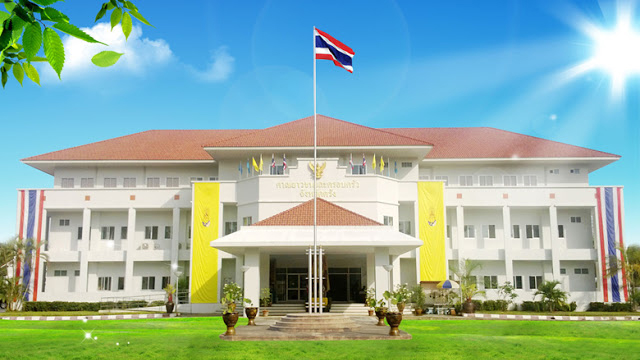Going To Court In Thailand
Going To Court In Thailand can be a daunting experience for anyone. This can especially apply to foreigners who are not familiar with the Thai legal system and of the processes involved. In this article, we aim to simplify the overall perspective and present the various types of court and the processes involved so that you will be better prepared if or when you ever find yourself in need of going to court in Thailand.
The Types of Courts in Thailand
The Thailand Courts of Justice are made up of three separate divisions consisting of 1) Courts of First Instance, 2) Courts of Appeal and 3) the Supreme Court (Dikar Court). Both civil and criminal matters are heard in these courts. Furthermore, the Thai Judiciary has set up an “Alternative Dispute Resolution Office” in order to promote dispute resolution so as to free up the main courts for hearing that are not able to be successfully be resolved through arbitration.
 In the Bangkok metropolitan region, there are “Municipal Courts” which deal with less complex matters but the provinces only have “Provincial Courts” which typically hear matters that would normally be heard by the “Municipal Court”. There are other specialist courts which deal with Taxation and Bankruptcy, Labor, Intellectual Property and International Trade but we won’t elaborate on those specialist courts here.
In the Bangkok metropolitan region, there are “Municipal Courts” which deal with less complex matters but the provinces only have “Provincial Courts” which typically hear matters that would normally be heard by the “Municipal Court”. There are other specialist courts which deal with Taxation and Bankruptcy, Labor, Intellectual Property and International Trade but we won’t elaborate on those specialist courts here.
One major specialist court division is the “Juvenile & Family Court” which hears family-related matters. Most major provincial cities have such courts established as family law-related cases are very common across the nation.
You can read more about the actual structure of the Thailand Courts of Justice on this government website: https://www.coj.go.th/th/content/page/index/id/91994
The Process of Going to Court
You will either be attending court as a plaintiff (the one making the claim) or the defendant (the one defending the claim). In the criminal court, you will either be the defendant or the complainant. In the Juvenile & Family Court, you will be the applicant or the respondent. In fact, as a side note, you could be involved in both civil and criminal hearings as an applicant or respondent but this article will not expand on that for the purpose of brevity.
In all of these circumstances, you will need to be represented by an attorney. If you can afford to hire a private attorney then that is a highly preferable option but if you can’t afford an attorney (in the case of being a defendant) then one will be appointed by the court. If you cannot speak Thai then you will need to have a Thai-English interpreter which you can provide privately or via a court-appointed interpreter. Mediation hearings are more relaxed in which you can rely on either a family member or privately appointed (but not formally accredited) interpreter to assist you.
 In civil matters, once the petition has been filed and accepted by the court, the first hearing is informal and usually takes place in a meeting room at the court. The purpose of the informal meeting is to mediate between the parties with the intention of arriving at an agreed solution to the dispute. If this can be achieved then the terms of settlement of the agreement will be registered by the court and the matter will conclude there without the need for any further hearings in a courtroom by a judge. If a mediation agreement cannot be reached then the matter goes before the court to be heard.
In civil matters, once the petition has been filed and accepted by the court, the first hearing is informal and usually takes place in a meeting room at the court. The purpose of the informal meeting is to mediate between the parties with the intention of arriving at an agreed solution to the dispute. If this can be achieved then the terms of settlement of the agreement will be registered by the court and the matter will conclude there without the need for any further hearings in a courtroom by a judge. If a mediation agreement cannot be reached then the matter goes before the court to be heard.
The two parties will argue the matter through their attorneys and the judge will hear all the evidence. If the two parties present are willing to settle, then the judge will facilitate that settlement and the case will then conclude. If the matter is not concluded at that point then it will be adjourned and the judge will consider the evidence before calling the parties to return to court at a later date to hear the decision of the court which will either be in favor of the plaintiff or the defendant. At this point, the hearing of the matter is concluded and either party has a period of 30 days to appeal the court decision. If an appeal is made by either party then both parties will need to prepare to go through another round of similar hearings in the court of appeal in an attempt to conclude the matter. Appeals aren’t too common and will add extra legal costs to both parties. Finally, a second appeal can be lodged for the matter to be heard in the highest court which is the Supreme Court of Thailand (Dikar Court). Not all appeals are accepted by the Supreme Court but in some cases involving high stakes then it is quite common for such appeals to be made. The process of a simple court hearing can be concluded over the period of 2 to 4 months, but if the case is complex and goes to appeal and perhaps all the way to the Supreme Court, then such matters can take years to conclude!
 The Juvenile & Family Court is generally a more relaxed environment intended at settling divorce applications and family disputes or matters involving children as well as matters of family succession. Where the parties are not hostile with each other then the procedural processes of the Family Court are relatively straightforward. However, this is not always the case and so you may need to prepare for making an application or response knowing that the other party is hostile to your objectives. Occasionally, a hearing may involve matters of child abduction which are more serious and too broad a topic to discuss here in brief. Such matters usually involve police reports and intervention and can be quite complex.
The Juvenile & Family Court is generally a more relaxed environment intended at settling divorce applications and family disputes or matters involving children as well as matters of family succession. Where the parties are not hostile with each other then the procedural processes of the Family Court are relatively straightforward. However, this is not always the case and so you may need to prepare for making an application or response knowing that the other party is hostile to your objectives. Occasionally, a hearing may involve matters of child abduction which are more serious and too broad a topic to discuss here in brief. Such matters usually involve police reports and intervention and can be quite complex.
If attending the Juvenile & Family Court either as an applicant or respondent, you will need the assistance of an attorney to help you prepare your court petition or to prepare to respond to one. It is a very specialist aspect of the law which in the case of considering child welfare matters has to primarily consider what is “in the best interest of the child” and this is generally where the argument can become quite heated and also involving some intense emotional issues by the parties. The court does have ways and means of counselling and interviewing the children to arrive at a balanced consensus of how the child actually feels and what it wants to see as a result of the hearings. Of course, the age and maturity of the children plays a direct bearing in such matters.
In conclusion
 If going to court in Thailand, you will need to engage an attorney. The costs for representation can be quite high depending on the matter and the stakes involved. You might need to be prepared to find collateral or cash to post bond money (for criminal matters and for civil matters involving money-count arguments). If you are summoned to court or receive a summons to attend a police inquiry into a criminal investigation, please contact us for a confidential chat. The first phone consultation is free and so you will be able to have the benefit of a professional and qualified legal opinion before you proceed any further. We can also provide you with a Thai-English interpreter accredited by the Thai Judiciary for any mediation or inquiry meetings or formal court hearings.
If going to court in Thailand, you will need to engage an attorney. The costs for representation can be quite high depending on the matter and the stakes involved. You might need to be prepared to find collateral or cash to post bond money (for criminal matters and for civil matters involving money-count arguments). If you are summoned to court or receive a summons to attend a police inquiry into a criminal investigation, please contact us for a confidential chat. The first phone consultation is free and so you will be able to have the benefit of a professional and qualified legal opinion before you proceed any further. We can also provide you with a Thai-English interpreter accredited by the Thai Judiciary for any mediation or inquiry meetings or formal court hearings.





